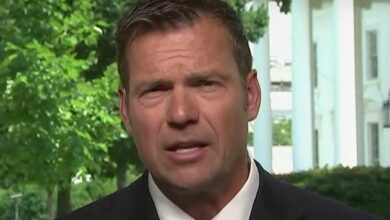Judge rules citizenship question may remain on Census
A federal judge has rejected an activist group’s request to prevent the Trump administration from asking 2020 Census respondents about their citizenship status.
In recent decades, Democrats and Republicans have fought bitterly over how the decennial, constitutionally mandated head count is carried out.
The Obama administration tried to wrest control over the census from the U.S. Department of Commerce but backed down. At the time, then-Rep. Darrell Issa (R-Calif.) called the move a “naked political power grab.”
The Clinton administration wanted to use statistical modeling or sampling to produce census figures, but that move was ruled unconstitutional in 1999 by the Supreme Court. The Republicans of the day said Democrats were trying to inflate the count in their big-city strongholds to manipulate the congressional apportionment process to benefit their side.
The legal victory for the Trump administration came this week when Judge Dabney Friedrich of the U.S. District Court for the District of Columbia threw out an application for a preliminary injunction filed by the Electronic Privacy Information Center.
The liberal group, which has ties to Democrat election organizations, argued that the government should have conducted a privacy impact assessment (PIA) before adding the citizenship question.
The court disagreed. The U.S. Census Bureau did not violate the law when it decided “to collect citizenship data before conducting, reviewing, or releasing a PIA addressing that decision,” Friedrich wrote in her ruling.
The Electronic Privacy Information Center vowed to move forward with its lawsuit, despite the setback. The lawsuit is one of about a half-dozen challenging the Trump administration’s plans for next year’s census. In New York, a federal judge ordered the citizenship question be taken out of the census. That case is expected to be heard by the Supreme Court.
The Commerce Department, which houses the Census Bureau, announced the inclusion of a citizenship question in the upcoming census last year. One of the reasons given for adding the question, which until the 1950s was a staple of the census, was to help identify possible violations of the Voting Rights Act.
More recently, the question has been included in the smaller, more detailed study, the Census Bureau’s annual American Community Survey, which is sent to about 3.5 million households annually.
Hans von Spakovsky, a senior legal fellow at the Heritage Foundation, has applauded the addition of the citizenship question. “The public has a right to expect that the government will do everything in its power to get as accurate a picture as possible of the American body politic,” he said.
But last year, Democratic politicians vehemently denounced putting the question in the census, accusing the Trump administration of having sinister ulterior motives.






